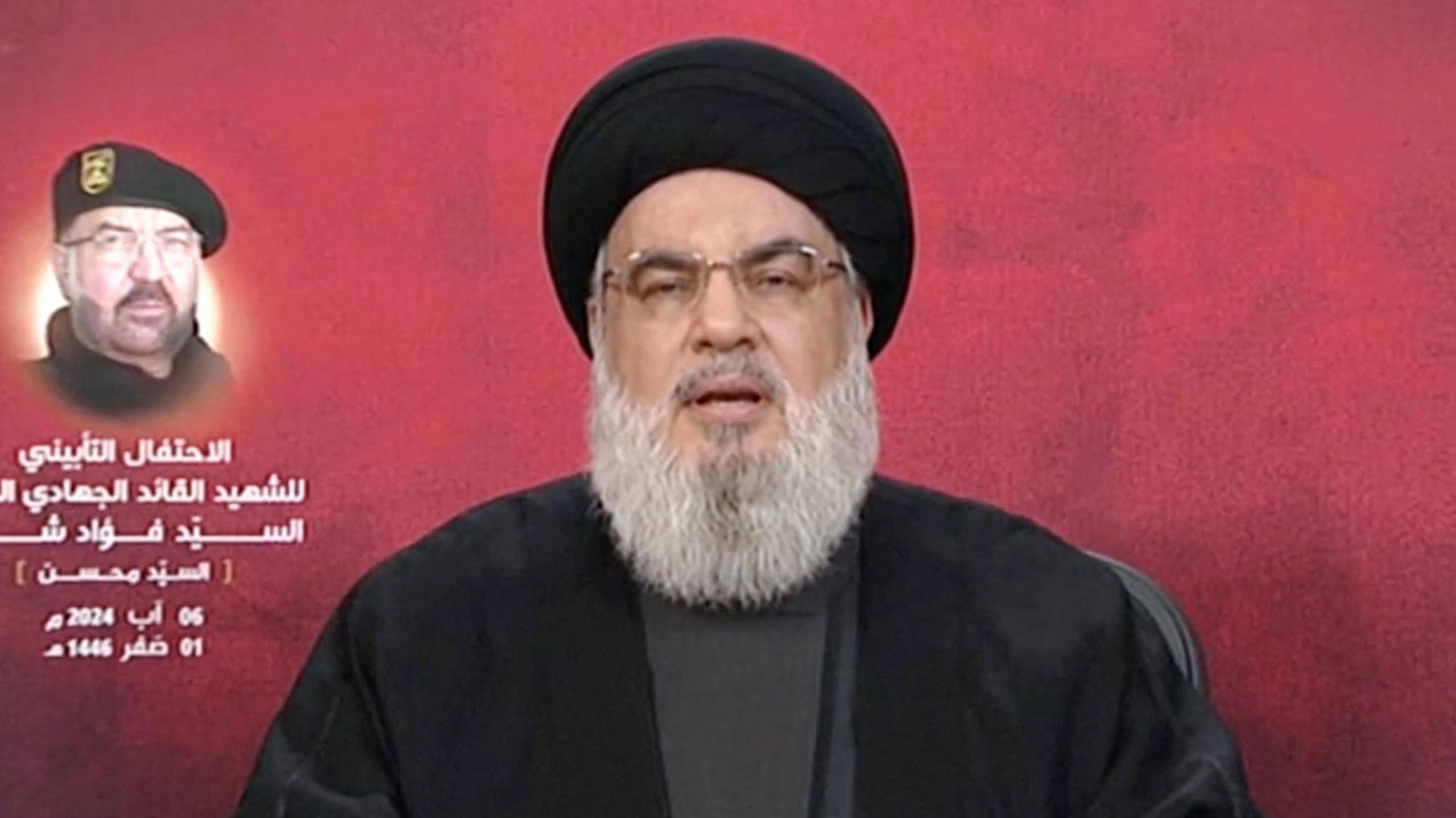Hezbollah vows retaliation for killing of commander

Hezbollah is an Iran-backed militia and political movement based in Lebanon
- Published
The leader of the Iranian-backed Lebanese group Hezbollah has said the response to the Israeli assassination of a senior commander in Beirut is coming.
Speaking in a televised speech to mark one week since Fuad ShukrÔÇÖs killing, Hassan Nasrallah said the retaliation would be ÔÇťstrongÔÇŁ and ÔÇťeffectiveÔÇŁ, and that the assassination could not be treated as an ordinary attack.
He added that the group might act alone or in co-ordination with other Iranian-supported factions in the region.
Countries around the world have urged their citizens to leave Lebanon in recent days, amid concerns that a possible attack from the heavily armed Hezbollah on Israel could lead to a wider war between the two sides.
Iran has also vowed to retaliate following the assassination of the Hamas political leader, Ismail Haniyeh, in Tehran last week. Both Hamas and Iran blame Israel, which has not commented.
On Tuesday afternoon, low-flying Israeli warplanes broke the sound barrier above Beirut, in the minutes before Nasrallah was due to begin his speech.
Nasrallah, who spoke for more than an hour and a half, said that the sonic booms were intended to provoke those who had gathered to listen to him.
Earlier on Tuesday, Israel said it had carried out an air strike against what it said was a "military structure" used by Hezbollah, the militia and political movement, in southern Lebanon.
Four people were killed in the strike on a house in the town of Maifadoun, around 19 miles (30km) from the Israeli border, the Lebanese health ministry said.
The four men were Hezbollah fighters, security sources told the AFP news agency. In an apparent response, the group launched drone strikes on towns in northern Israel, injuring two people.
Several countries, including the US, have urged citizens to leave Lebanon as soon as possible. The country's foreign minister said on Tuesday that he was working to ensure that Hezbollah did not trigger a major escalation with its response to Shukr's death.
The Israeli attack on Maifadoun was carried out by fighter jets, and was guided by intelligence agencies, the Israeli Defense Forces said in a statement posted to social media. Officers from the internal security agency Shin Bet and military intelligence agency Aman provided assistance to the military.
In response, Hezbollah fired what it called a "swarm" of drones at Israel, injuring two people in the northern town of MazraÔÇÖa. But a source in the group told the Reuters news agency that the attack was not part of its response to the death of Shukr.
US President Joe Biden met his senior national security team on Monday as concerns of a retaliatory attack on Israel grew.
Mr Biden said he had been briefed on preparations to support Israel, should it be attacked, while Secretary of State Antony Blinken said officials were working "around the clock" to prevent an escalation.
The United Nations' rights chief Volker Turk called on "all parties, along with those states with influence, to act urgently to de-escalate what has become a very precarious situation".
Elsewhere, several US military personnel have been injured in a strike on a base in Iraq. The rocket fire on the Ain al-Assed base is the latest in a series of attacks on the facility, which hosts American forces fighting the Islamic State group.